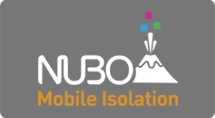Warning: This story may seem eerily familiar but is still terrifying to IT security and BYOD users nevertheless. Reader discretion is advised:
A recent survey of over 1,000 employees by email data protection firm ZixCorp produces some important takeaways that organizations would be remiss to ignore if they want a BYOD program that employees can actually get behind. 71 per cent of the employees surveyed said they would avoid using their personal phone out of concern it could be completely wiped should they lose their phone or leave their company. 20 per cent of respondents also admitted that they would wait a few days or longer to report a missing device out of fear of getting their device wiped.
There are several very important reasons why your company should wipe out remote wiping from its lexicon, but one reason is very simple: You don’t have to do it if you’re not saving corporate data on personal devices. While Mobile Device Management (MDM) and most mobile security solutions are still founded upon an approach that necessitates securing data already saved on the device, Virtual Mobile Infrastructure (VMI) runs a mobile operating system compatible with all Android and Apple devices, and instead stores all of the apps, files and data on a secured and remote cloud. You can access and work on all of these applications thanks to a remote display protocol which transfers them onto your phone as a flat display. This lets your employees check and respond to emails, access network files and use enterprise apps without saving any of the information on their device.
If there’s no data on the device to protect, there’s no need to remote wipe your employees’ phones and suffer the significant negative ramifications this causes.
The survey results spell out a very important fact that organizations should take heed of sooner rather than later: Remote wiping isn’t just a headache or employee concern – it’s a significant obstacle to implementing a successful BYOD policy for pretty much everyone involved.
Here are three main reasons remote wiping is a barrier to a successful BYOD program, and how using VMI technology can render these issues a moot point:
1) Remote Wiping is actually a security risk
It may seem strange to think of a security procedure as a security risk, but security measures are only effective when they earn the approval and loyalty of the people they govern. If one out of every five of your employees decided to ignore your BYOD policy and chooses not to report their missing device for a few days, a week or even longer, than that puts the corporate data sitting on that phone at risk. During this window of time, critical information can be stolen and used against your company’s best interests. A VMI solution means zero data is stored on the device. Ever. This means your employees are much more likely to immediately report lost devices. It also makes managing devices simple and stress-free for IT, which can easily disconnect the device’s access to the cloud.
2) Remote wiping is a burden to your IT security department
Mobile phones go absolutely anywhere and everywhere their owners go, and are therefore misused, lost or stolen more frequently than any other device. This adds an unnecessary demand on your security team’s time and resources to remote wipe compromised devices. VMI literally wipes away the hassle of remote wiping and let’s your IT team focus on projects that add value to your organization.
3) Remote wiping personal devices is a lose-lose BYOD solution for both management and employees
Your BYOD policy isn’t worth the paper it’s written on if it alienates your employees to the degree that they would avoid reporting missing devices, or even worse, avoid using their smartphones to access work resources. Your BYOD program is supposed to encourage participation and facilitate productivity, not deter it. The survey also indicated that employees were very concerned about their privacy, mainly giving their employer access to their personal information and control of all or part of their device.
Forward-thinking organizations should look beyond immediate security threats and short-term responses and visualize the bigger picture heading into the future, where user dependence on mobile technology is only going to increase. A successful BYOD policy needs to be designed in a way that not only secures your data, but enhances your corporate brand and reputation. Using a solution like VMI which removes the substantial threat caused by storing corporate data on personal phones, not only gives IT more security and peace of mind. It also removes the most important fears and concerns holding your employees back from embracing your BYOD program. This will empower them to take advantage of the core strategic benefits BYOD was meant to provide and increase productivity. Their support and loyalty will also boost your company’s credibility and raise its reputation that much more.












